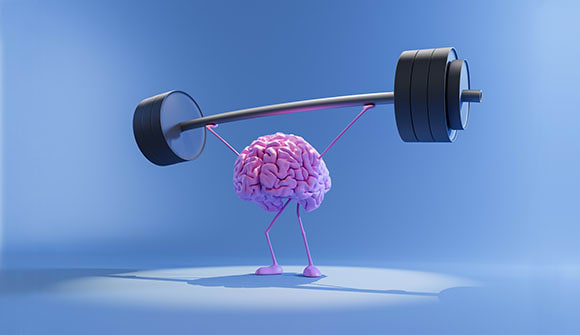Maintain a healthy brain
The rebounding power of cognitive reserve.
Article Author: Guest Columnist
Article Date:

Our guest columnist is Alicia Laconich, PhD, a licensed psychologist and clinical neuropsychologist with Baptist Behavioral Health.
Your brain is the CEO of your body; it manages your emotions, thoughts, language and decision-making abilities, memory and more. It defines your identity. And, you only get one.
In the event of brain-related conditions like stroke or dementia, we rely on outside factors like doctors, medications and procedures to get better. However, we can certainly take steps to improve our chances at a good outcome years before these life-altering conditions strike. This requires an understanding of what we know as cognitive reserve.
What is cognitive reserve?
In simple terms, cognitive reserve is the brain’s protective mechanism to compensate for or reverse damage that may occur through a sudden event (stroke) or gradual-onset condition (dementia). It can be built up through things like education, brain exercises (doing word puzzles, learning a new language or expanding your vocabulary), life achievements and social interaction.
Cognitive reserve may be the reason some individuals with the same diagnosis experience different outcomes; those who have a higher cognitive reserve may be more functional or less impaired than others.
Cognitive reserve gives you control
What does this mean for you? Though you can’t necessarily eliminate your chances of getting dementia or suffering a stroke, you can set yourself up to be in the best position to recover, should something occur. Certain habits can greatly improve brain function. These include:
- Following the Mediterranean diet
- Exercising regularly
- Getting quality sleep
- Engaging in social activities
- Stimulating your brain
The challenge lies in translating this knowledge into everyday life. This can be achieved by:
Aligning healthy habits with your interests and preferences.
For example, if you don’t like the gym, you can consider exercising in a different location like outside or at home while watching your favorite television show. Looking for a way to stimulate your mind? Try finding activities related to a hobby you enjoy. If you like to travel, you can research different destinations, cultures and traditions. Looking to exercise your green thumb? Grow your own garden or enroll in a course to learn more about plants and flowers.
Setting specific goals.
Think about the acronym, "SMART." The goal should be specific, measurable, attainable, relevant and timely. Setting SMART goals instills a sense of personal significance and accomplishment, promotes accountability and timing, and facilitates adherence to changes. A good way to set SMART goals can be by asking yourself the following questions:
- What specific mental or physical activity will I incorporate into my daily routine?
- What will be the best method for monitoring and measuring my progress?
- Is the goal realistic and achievable for me?
- Do I have the necessary resources?
- Is the goal aligned with my objectives for enhancing brain functioning?
- How many minutes can I devote to it every day?
Often, incorporating healthy habits into your routine isn’t easy because of busy schedules and limited time, but if you don’t invest in building your brain wellness, you could end up spending more time recovering if something happens.
Prepare now for the future: Prioritize activities you enjoy and boost your brain health at the same time!
It’s never too early to get your brain in shape. Your primary care physician can provide personalized guidance to keep your mind and body well. To find the right Baptist Primary Care provider for you, call 904.202.4YOU or fill out the appointment request form. For those 65 or older, Baptist AgeWell Center for Health provides a unique type of primary care to help you continue living your best life. Click here to request an appointment.



